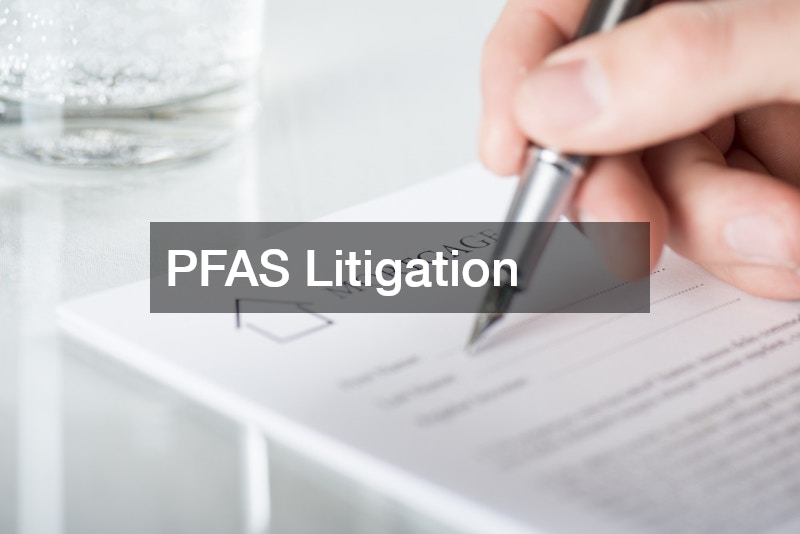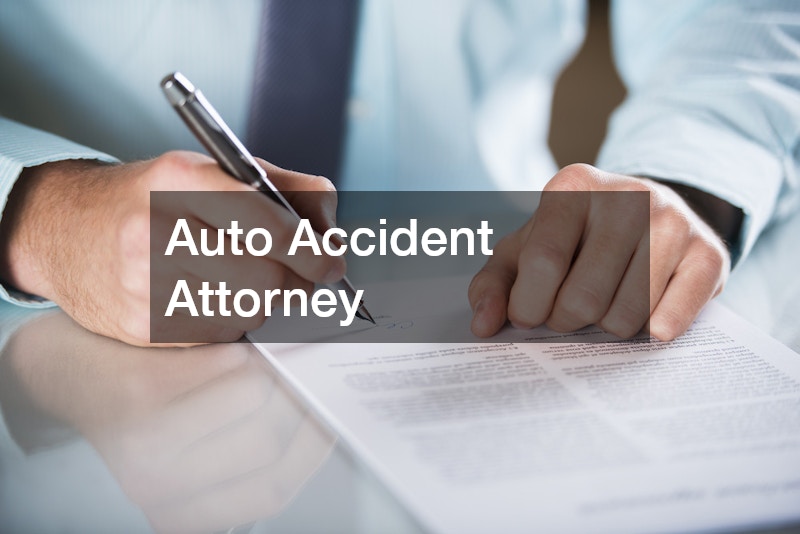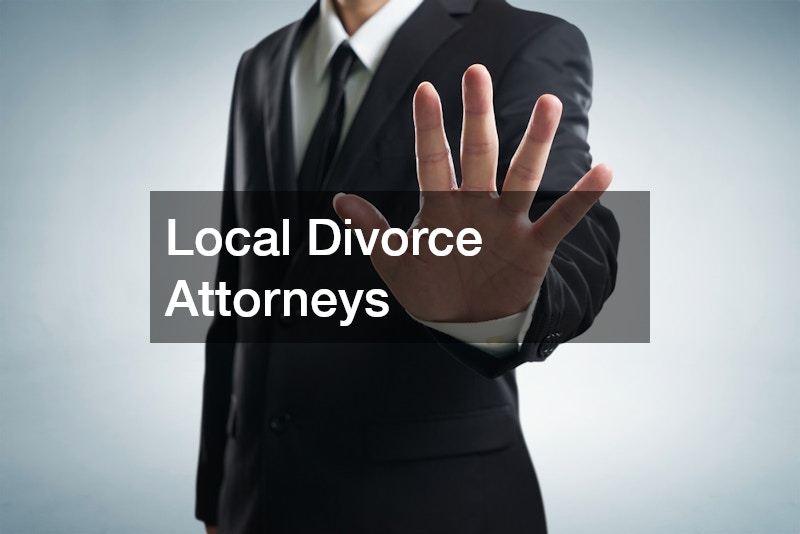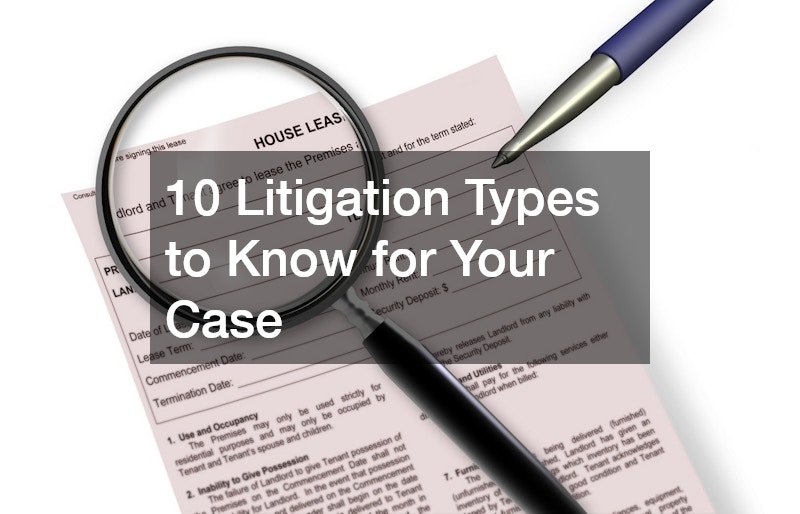Litigation refers to the process of resolving disputes through the court system. It involves one party filing a lawsuit against another, seeking a legal remedy for a breach of contract, personal injury, or other legal claims. Litigation typically includes several stages: investigation, pleadings, discovery, pre-trial motions, trial, and potentially an appeal.
Litigation can be lengthy, costly, and complex, as it often requires the expertise of legal professionals to navigate court procedures, present evidence, and argue the case before a judge or jury. While many cases are settled before trial through negotiations or alternative dispute resolution methods like mediation, others proceed to full trials where a court delivers a binding decision.
Litigation is used in civil disputes as well as criminal cases, providing a formal mechanism for individuals, businesses, and organizations to seek justice and enforce their legal rights under the law.
The world of legal litigation is vast and multifaceted, encompassing an array of fields that require specialized knowledge and expertise. As society evolves, so too does the nature and complexity of legal disputes, making it crucial for individuals and businesses to seek attorneys with the appropriate skill sets for their specific needs. From personal injury cases to complex corporate disputes, understanding the nuances of each type of litigation is vital for achieving favorable outcomes in court. Consequently, this article delves into several types of litigation, exploring the distinctive roles that attorneys play in each field. We will examine the specific responsibilities associated with vaccine attorneys, PFAS litigation specialists, business lawyers, and more, providing detailed insights into the legal mechanisms at play. In doing so, we aim to furnish readers with a comprehensive guide to navigating the complex terrain of litigation types.
Vaccine Attorneys
Vaccine attorneys specialize in handling cases related to vaccine injuries and adverse reactions. Their role is critical in helping clients navigate the complex legal processes associated with filing claims under the National Vaccine Injury Compensation Program (VICP). This type of litigation ensures that individuals who experience negative health outcomes from vaccines are adequately compensated, fostering trust in public health initiatives.
Given the intricate medical and scientific evidence involved, vaccine litigation requires attorneys to work closely with healthcare professionals to support their clients’ claims. The process typically involves the detailed assessment of medical records, expert testimonies, and rigorous adherence to federal guidelines. With vaccine hesitancy on the rise, the demand for specialized vaccine attorneys is increasing, making their expertise in this specific type of litigation crucial for public health equity.
The litigation types they typically engage in are both civil and administrative, depending on the case’s nature and jurisdiction. Special vaccine courts, established to handle such cases, streamline proceedings and provide a unique legal forum observed nowhere else. The knowledge and strategic acumen of experienced vaccine attorneys are indispensable in navigating these specialized legal arenas.

PFAS Litigation
PFAS litigation has become a significant area of environmental law due to the detrimental effects of per- and polyfluoroalkyl substances (PFAS) contamination. These substances, once widely used for their non-stick and water-repelling properties, have been linked to severe health issues and environmental damage, leading to an increase in litigation types addressing these concerns.
Attorneys specialized in PFAS litigation focus on representing both individuals and communities seeking redress from companies responsible for the contamination. The legal landscape for PFAS cases often involves massive class-action lawsuits and requires detailed scientific and environmental assessments to establish liability and causation. This specialized litigation demands high levels of coordination among legal teams, scientific experts, and government agencies.
Settlement agreements and trial verdicts in PFAS litigation can result in significant financial awards and drive legislative changes aimed at curbing future environmental harm. These lawsuits not only seek compensation but also push for remedial actions to mitigate pollution and protect public health. For attorneys involved, comprehending the various litigation types and regulatory standards associated with environmental law is paramount.
Business Lawyer
Business lawyers occupy an essential niche in the legal ecosystem, focusing on establishing and protecting the legal interests of corporations and entrepreneurs. They handle a vast range of litigation types, from contract disputes and mergers to intellectual property issues and employment law cases. A business lawyer’s ability to anticipate and navigate potential legal challenges is invaluable for maintaining a company’s operational integrity.
Litigation involving businesses often requires a deep understanding of commercial law and strategic negotiation. Whether defending against claims or proactively leveraging litigation to enforce rights and agreements, business lawyers need to be adept in courtroom procedures and alternative dispute resolution techniques. Their primary goal is to align legal strategies with their client’s overarching business objectives.
In a rapidly evolving marketplace, staying informed about changes in regulatory and compliance standards is critical. Business lawyers must continuously refine their knowledge of the different litigation types that affect various industries to provide adept counsel and representation. This emphasis on adaptability allows them to effectively mitigate risks and capitalize on opportunities for their clients.

Auto Accident Attorney
Auto accident attorneys serve as vital advocates for individuals injured in vehicular accidents, working to secure just compensation for their clients. This branch of legal practice deals predominantly with personal injury litigation types, having the capacity to influence both the lives of individuals and broader public safety measures.
These attorneys are tasked with investigating accident scenes, gathering critical evidence, and negotiating with insurance companies to maximize settlements. The nature of auto accident cases demands a keen understanding of traffic laws, insurance claims processes, and the civil litigation system. Attorneys often work on a contingency fee basis, which underscores the importance of their expertise in achieving successful case outcomes.
The ripple effect of successful auto accident litigation can extend beyond individual compensation, pressuring regulatory bodies to enact reforms that enhance road safety. Legal precedents set by these cases can also influence future automobile safety features, showcasing the broader impact that diligent legal advocacy can have. Understanding these litigation types thoroughly is fundamental to advancing client interests and driving social change.
Bankruptcy Lawyers
Bankruptcy lawyers provide critical support to individuals and businesses facing financial distress, guiding them through the complexities of filing for bankruptcy protection. This type of litigation offers an opportunity for debt relief and financial restructuring, leading to a fresh start for clients overwhelmed by fiscal obligations.
The intricate nature of bankruptcy law necessitates that attorneys possess a comprehensive understanding of various litigation types, including Chapters 7, 11, and 13 filing procedures. Bankruptcy lawyers must adeptly navigate legal, financial, and administrative hurdles to procure debt forgiveness, payment plans, or asset liquidation for their clients, depending on individual circumstances.
The broader economic implications of bankruptcy litigation underscore its importance in maintaining the financial health of consumer and business markets. By effectively managing these cases, bankruptcy lawyers not only help clients to regain stability but also contribute to economic equilibrium. Their expertise ensures adherence to legal statutes while maximizing potential recovery options for affected creditors.

DUI Attorney
DUI attorneys specialize in defending clients charged with driving under the influence of alcohol or drugs, a serious offense with potential far-reaching consequences. This area of practice demands a nuanced understanding of criminal law and litigation types specific to DUI cases, as well as proficiency in providing sound legal counsel.
The process typically involves challenging the methods law enforcement used to establish impairment, scrutinizing the validity of sobriety tests, and negotiating plea deals or reductions in charges. Given the severe penalties associated with DUI convictions, including substantial fines, license suspension, and imprisonment, a competent DUI attorney is crucial for protecting clients’ rights.
Furthermore, the societal impact of DUI litigation goes beyond individual cases, influencing public policy and law enforcement practices. By advocating for fair treatment and due process, these attorneys play a critical role in balancing public safety concerns with individual liberties, underscoring the importance of their work in the broader spectrum of litigation types.
Family Lawyers
Family lawyers manage a variety of emotionally charged cases integral to personal and familial well-being, encompassing divorce, child custody, and adoption. The diverse litigation types in this field necessitate a deep sensitivity to the delicate nature of familial relationships and the emotional intelligence to navigate disputes with compassion and tact.
A primary function of family lawyers involves mediating conflicts and advocating for client needs during legal proceedings. Whether drafting prenuptial agreements or negotiating custody arrangements, their role is pivotal in crafting solutions that prioritize the best interests of children and uphold family stability. Effective family lawyers are well-versed in alternative dispute resolution methods, such as mediation and collaborative law, which prioritize amicable settlements over adversarial litigation.
The outcomes of family law cases can profoundly affect family dynamics, underscoring the need for diligent representation. These cases often set legal precedents and influence societal norms regarding family responsibilities and rights. As such, understanding the nuanced litigation types involved in family law is essential for both achieving favorable legal outcomes and fostering healthy, resilient family structures.

Local Divorce Attorneys
Local divorce attorneys provide indispensable legal assistance for individuals navigating the complexities of marital dissolution. This type of litigation often involves deciding on asset division, spousal support, and resolving any disputes that arise during the divorce process. Their role is crucial in guiding clients through the emotionally taxing journey of ending a marriage.
Divorce litigation can be uniquely challenging, requiring attorneys to blend legal acumen with empathetic communication to support their clients effectively. They must be adept at managing psychological nuances while pursuing equitable settlements or court resolutions. Their expertise also extends to drafting and executing divorce agreements that are comprehensive, fair, and legally binding.
Moreover, local divorce attorneys often act as mediators, facilitating negotiations and reducing the adversarial nature of divorce proceedings. By minimizing conflict and prioritizing resolution, they enable clients to transition smoothly into post-divorce life. Understanding the intricate litigation types and local legal practices is essential for these attorneys to deliver effective representation and ensure client satisfaction.
Injury Attorneys
Injury attorneys, also known as personal injury lawyers, represent clients suffering from physical or psychological harm due to the negligence or misconduct of others. They tackle a myriad of litigation types, including medical malpractice, workplace accidents, and product liability cases. The primary goal of injury attorneys is to secure compensation for their clients to cover medical expenses, lost wages, and other associated damages.
This legal specialty requires a thorough understanding of both state and federal laws governing personal injuries and the ability to navigate complex insurance claims processes. Injury attorneys also work with expert witnesses, like medical professionals, to strengthen their cases and advocate for fair settlements or favorable court verdicts. The pursuit of justice in personal injury cases often leads to broader safety reforms and heightened accountability within industries.
Successful injury litigation can serve as a significant deterrent to negligence, encouraging individuals and companies to prioritize safety and compliance with established standards. Thus, injury attorneys play a pivotal role not only in seeking redress for individual grievances but also in driving systemic change. Their familiarity with various litigation types equips them to effectively manage and litigate personal injury claims to the benefit of their clients and society as a whole.
The landscape of legal litigation is diverse and ever-changing, with specialized experts like vaccine attorneys, PFAS litigation specialists, and others playing crucial roles in navigating these complexities. Each type of litigation requires a unique set of skills and knowledge, tailored to meet the specific legal challenges present in their respective areas. Understanding the various litigation types is not only essential for attorneys but also serves clients and the legal system effectively, facilitating just outcomes across the board.
As we explore different areas of litigation, we see the critical part that attorneys play in both individual and societal contexts. Their efforts not only address personal grievances but also set new legal standards and precedents that can ripple through industries and communities. Through meticulous legal work, ranging from handling the intricate details of high-stakes class-action lawsuits to advocating for individual rights in personal disputes, these legal professionals ensure that justice is served and societal norms are continually refined.
Ultimately, their specialized knowledge and steadfast dedication underline the indispensable role of attorneys in ensuring equity and viability within the legal framework. As new challenges emerge in this dynamic field, adaptability and comprehensive understanding of litigation types remain key to navigating future legal landscapes successfully.
